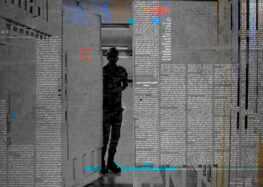Iran Protests: Arrests of School Children Prompt Grave Fears of More Child Killings
 Officials Paint Children as Enemies of the State, Claim They’re “Reforming” Kids
Officials Paint Children as Enemies of the State, Claim They’re “Reforming” Kids
At Least 28 Children Killed Since September 16, Reports Tehran-based Group
October 13, 2022 – The arrests and interrogations of school children accused of joining nationwide protests in Iran and their detention in so-called “psychological centers” has raised fears of more child killings in the fourth week of protests that have been spreading across the country since September 16.
“Call this what it is: Kidnappings of children by a state that is stopping at nothing in its attempts to quell protests and terrify the people of Iran into submission,” said Hadi Ghaemi, executive director of the Center for Human Rights in Iran (CHRI).
“UNICEF, which has an office in Iran, should be tracking down these defenseless children and getting them back to their families,” said Ghaemi. “World governments should loudly call on Iranian officials to stop arbitrarily detaining children as well as adults for exercising their right to protest, as well as urge for the end of lethal force against protesters.”
“U.S. President Joe Biden and democratic allies at the UN should establish an urgent special session at the UN Human Rights Council to bring governments into a debate over the current violent crackdown and Iran’s ongoing human rights crisis,” he added.
At least 28 children are among the reported minimum number of 201 individuals killed since anti-state, nationwide protests erupted in the country in mid-September after the death of Mahsa Amini, 22, following her arrest by the morality police.
The number of 28 children was reported by the Tehran-based Association for the Protection of Children on October 10, which added that “the largest number” of deaths occurred in the province of Sistan and Baluchistan.”
On October 11, 2022, Education Minister Yousef Nouri told the Shargh daily that an unspecified number of children had been sent to reeducation camps after they were arrested allegedly for engaging in anti-state protests.
“We do not have students in prisons and those who have been detained are in psychological centers for discussions on reforming and educating them. Our expert friends are in charge of this, so the students can be returned to their schools,” Nouri said.
Reza Hadjipour, MP and spokesperson for the Education Committee of the parliament in an interview with Rokna news agency confirmed high school students are being detained but downplayed it by saying: “There are few students in detention, mainly those who are in contact with opposition networks abroad. Our friends have summoned them and are interrogating them now.”
The comments have caused fury in Iran, especially at school teachers and principals who’ve been accused of aiding intelligence and security agencies in detaining the kids.
“For the last time we warn high school principals in the city of Karaj to stop making schools security zones and not to continue sharing video footage from school cameras with security and intelligence agents,” said a statement by the Organization of Associations of Teachers on October 13.
“We have received names of those teachers and principals in schools, we will not publicize them for now,” added the statement. “We ask you to wake up and stop contributing to the bloodshed. Otherwise, we will publicize the names and pictures of these so-called teachers and principals.”
Iranian officials have not specified how many children have been arrested and have cut internet and phone access to the country to prevent information from reaching the outside world.
Information posted on social media indicates that children have been arrested in at least three cities: Karaj, Bandar Abbas, and Sanandaj, where Iranian authorities have been waging a lethal crackdown on protests there.
“Iranian officials operate with such impunity that they openly admit to child kidnappings without any fear of being held accountable for engaging in such monstrous actions,” said Ghaemi.
“We can’t look at the signing of a nuclear deal with Iran in isolation; efforts at nuclear nonproliferation are important, but what will flow from this specific deal is a significant release of funds that will only serve to increase the repressive capacity of the regime,” he added.
“Empowering the Islamic Republic by bolstering its economic capacity at a time when it is violently and unlawfully trying to crush peaceful public protest and dissent, including by arresting kids, is an effective interference in the country’s domestic affairs—it actively assists the government,” said Ghaemi.
Read this article in Persian






